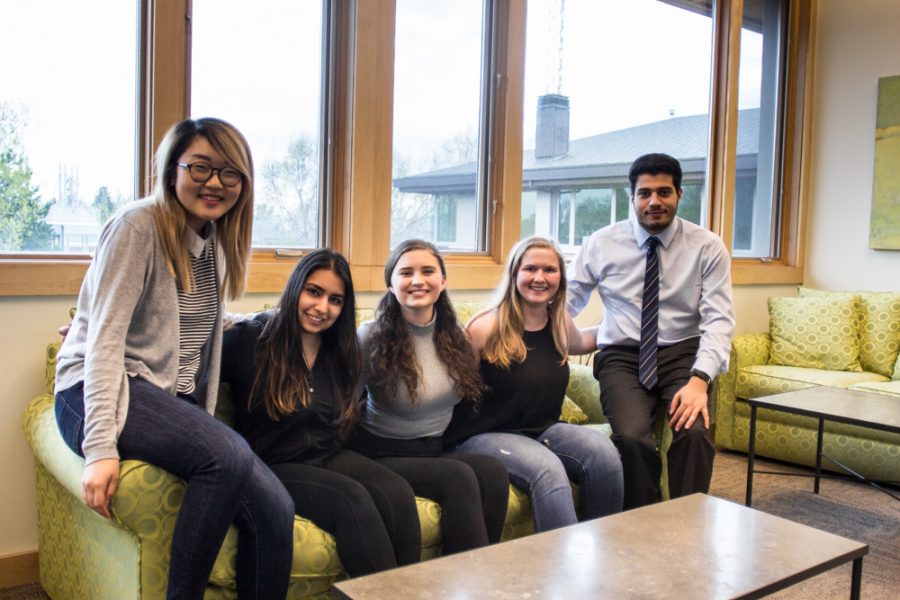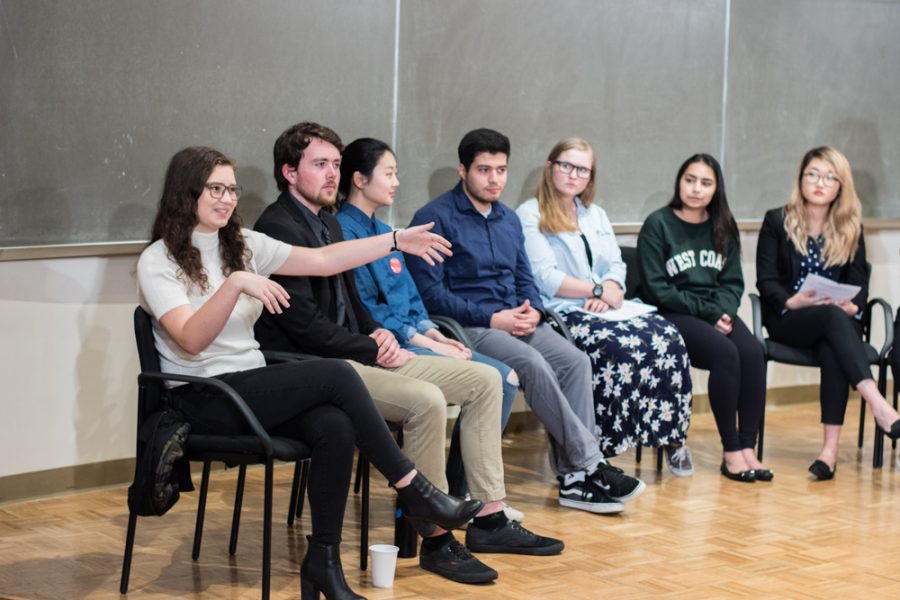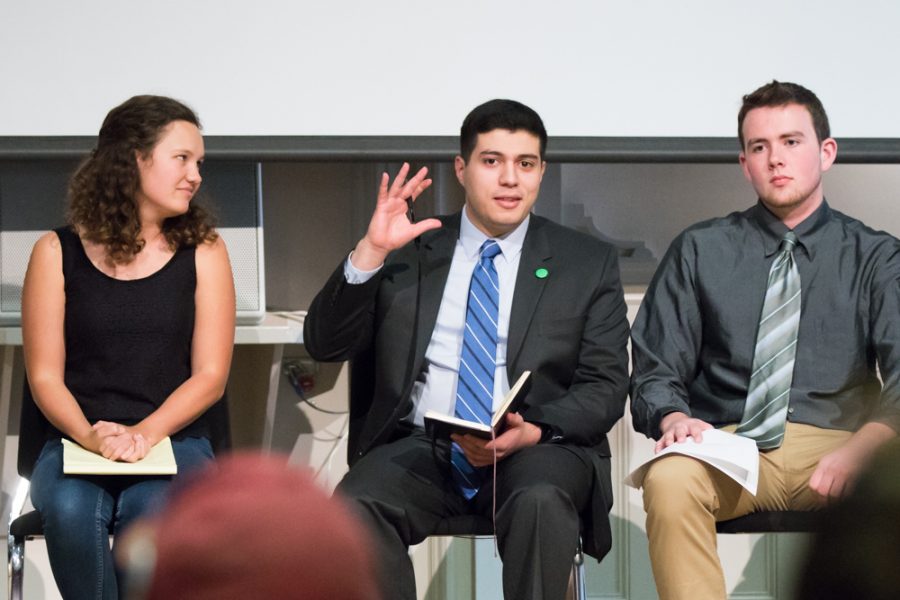Although senior Tristan Grau did not have troubling finding space in the courses he wanted during pre-registration for the spring 2011 semester, he did not get his first choice of class schedules.
“When I first looked at the available courses for the spring semester to plan my schedule, I realized that three of the classes I wanted were offered at the same time at 1 p.m. on Monday and Wednesday afternoons,” Grau said.
This problem of course compression: where certain times during the day have far more classes than other times: is one of a number of reasons this pre-registration season was so frustrating for many students.
“If Whitman wants to continue to be considered a top-tier school, we can’t go on very long having sub-par course selection, availability and constantly rising class sizes,” ASWC Vice President, senior John Loranger said. “Of course nor can we have tuition continue to rise, but it is important to realize that the present trajectory cannot continue without addressing registration and enrollment concerns.”
In order to help combat this problem of rising class sizes and course compression, the faculty voted in November to create a Curriculum Committee with the express purpose of coordinating the academic schedule across departments.
“In part, this committee takes over from the old Academic Council tasks associated with initial consideration of curricular proposals, prior to bringing those to the full faculty,” Associate Professor of Astronomy and Chair of the Faculty Andrea Dobson said in an e-mail. “In addition, the Curriculum Committee will consider current concerns such as course compression into too few teaching blocks (e.g., too many classes offered at 10, 11 and 1 p.m.) and facilitate the process of making two-year course schedules available for faculty and students to help students plan more effectively.”
When the committee was first proposed it included a student representative. This was done to have the insight of the students when making decisions about what times classes should be offered.
In a later revision of the proposal, however, the provision for student representation was taken out over concerns about privacy.
“Some faculty favor student involvement, some oppose it (e.g., the committee may need to discuss matters that would be too awkward in the presence of students), and many are happy to have student involvement as needed,” Dobson said.
The current proposal does not eliminate students from the committee entirely. Students were written into the final proposal to be consulted as needed.
“It’s not that students are not included, just not as committee members,” Dobson said.
ASWC does not think this goes far enough.
“You are going to have students catch things that might slip through the vertical perspective of the faculty,” Loranger said. “It is so much easier to have students already in the room. I doubt that the faculty are going to wait and have students come in to the next meeting before making key decisions.”
He believes that given the tight deadlines of proposals coming to the committee, its members might not have sufficient time to consult students.
“We are all invested in this institution,” ASWC President senior Carson Burns added. “We all want what is best for the college and having students on the committee would enable it to make the best and most informed decisions.”
ASWC also rejects the idea that students could not be trusted dealing with sensitive and private matters.
“Students are already sitting on other faculty committees including the President’s Budget Advisory Committee and the Council on Student Affairs, which both deal with highly sensitive and confidential matters,” Burns said. “It is hard to understand why faculty wouldn’t want students to be a part of discussions on the curriculum because, like the faculty, we are the ones experiencing it on a daily basis.”
This question of student representation is far from resolved. Carson and Burns were invited to speak at the most recent faculty meeting in December where they presented the results from the ASWC pre-registration survey and urged the faculty to support a motion to re-introduce student representation to the Curriculum Committee.
At the time of publication, no faculty members have stepped up and supported such a motion. Both Dobson and ASWC remain hopeful that progress can be made in the future and that the faculty and ASWC can come to a satisfying conclusion for both sides.
“I anticipate working with [Burns and Loranger] more in the spring semester on the question of student membership on the Curriculum Committee,” Dobson said.














